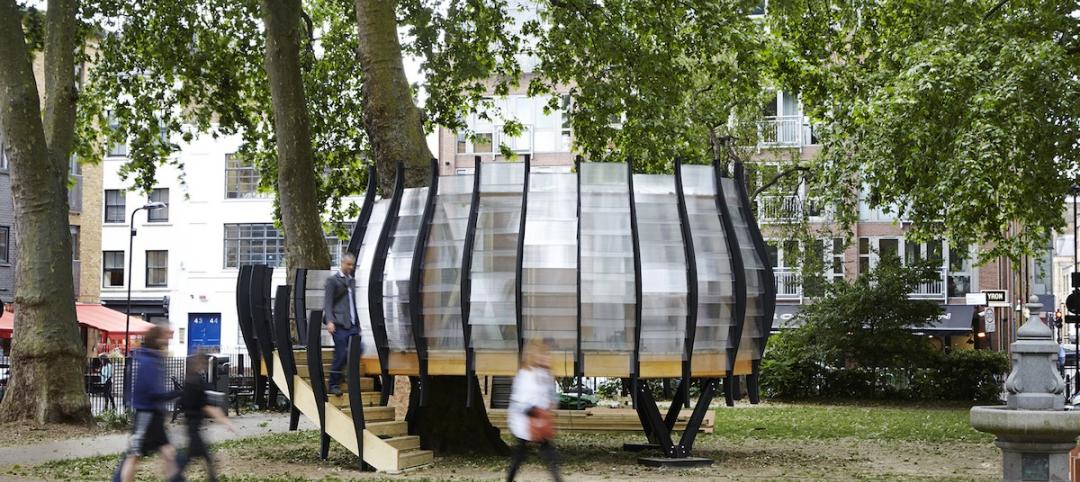During a time of great political divide across the nation and widespread distrust of bureaucrats in Washington, D.C., can architecture offer a practical solution to partisan politics?
Deadlock continues to fester on Capitol Hill. Congress’ approval rating ended the year at a meager 17%, and has hovered below the historic average (31%) since mid-2009. President-elect Donald Trump has stated that he plans to work with those on both sides of the aisle in Congress to accomplish his goals. Observers and experts predict Trump will have a tough go at it, even with a GOP-controlled Congress.
This begs the question, Is the “aisle” part of the problem in Washington? I’m not referring to the metaphorical divide between political parties, rather the physical layout of legislative spaces.
From K-12 schools to offices to universities, building owners across practically every sector are retooling their spaces to meet the needs of today’s innovation economy. Why not legislative spaces?
“In such a tumultuous period, shouldn’t we be questioning whether these spaces are working?” wrote New York Times architecture writer Allison Arieff, in a Nov. 2 opinion piece.
So much has changed in the business of governing—social and mass media, electronic voting, global convenings—yet the vast majority of spaces for political congregation remain virtually untouched, “frozen in time,” wrote Arieff.
She points to a study by Amsterdam-based creative agency XML that breaks down the design of 193 legislative buildings across the world. The most prominent layouts—opposing benches, classroom, and semicircle—were developed 165–215 years ago and remain intact with little modification. When updates are required, governments tend to restore these spaces, rather than rethink the layout.
There are outliers, though, including a meeting hall with zero tables and chairs for the European Union Council in Brussels. The layout, designed by XML and Jurgen Bey, utilizes blocky, interlocking furniture pieces that encourage council members to mingle. Check out XML’s report here.
Related Stories
Sponsored | | Jun 18, 2015
How to earn respect as a leader
Employees will give you minimum effort if the only reason they respect you is for your authority
Building Materials | Jun 12, 2015
Construction materials prices up in May, down year-over-year
Prices for inputs to construction industries rose by 1.1% in May—the largest month-over-month increase in more than two years.
Office Buildings | Jun 12, 2015
Houston's energy sector keeps office construction humming
Colliers International projects continued expansion this year in its quarterly report on national office market.
Office Buildings | Jun 11, 2015
Pop-up tree-office opens in London borough of Hackney
London's Hackney borough welcomed a new kind of workspace to Hoxton Square—the TreexOffice.
Office Buildings | Jun 9, 2015
Hines planning $300 million office tower for Denver skyline
Designed by Pickard Chilton, the 640,000-sf tower is geared for large-scale tenants, with features like floor-to-ceiling glass, a 5,000-sf fitness center, a tenant lounge, and a series of outdoor terraces.
Sponsored | Building Team | Jun 9, 2015
Is your firm social enough?
The overwhelming majority of A/E/C firms are engaged in social media. But to what end?
Contractors | Jun 8, 2015
ABC: 49 states report decline in construction unemployment rate
Five Plain States reported the lowest unemployment rates for construction workers in April.
Sponsored | Metals | Jun 4, 2015
How big of a building do I need?
Here is some advice on how metal buildings can be a solution for space shortages
Sponsored | Building Team | Jun 3, 2015
Succession planning starts with developing your leaders
Two-thirds of U.S. companies still admit that they have no formal succession plan in place, a 2014 survey conducted by the National Association of Corporate Directors found.
Building Team | Jun 3, 2015
Irvin E. Richter of Hill International receives Lifetime Achievement Award from CMAA's Mid-Atlantic Chapter
The award was given in recognition of his dedication, innovation and leadership in the area of project management and construction claims services

















